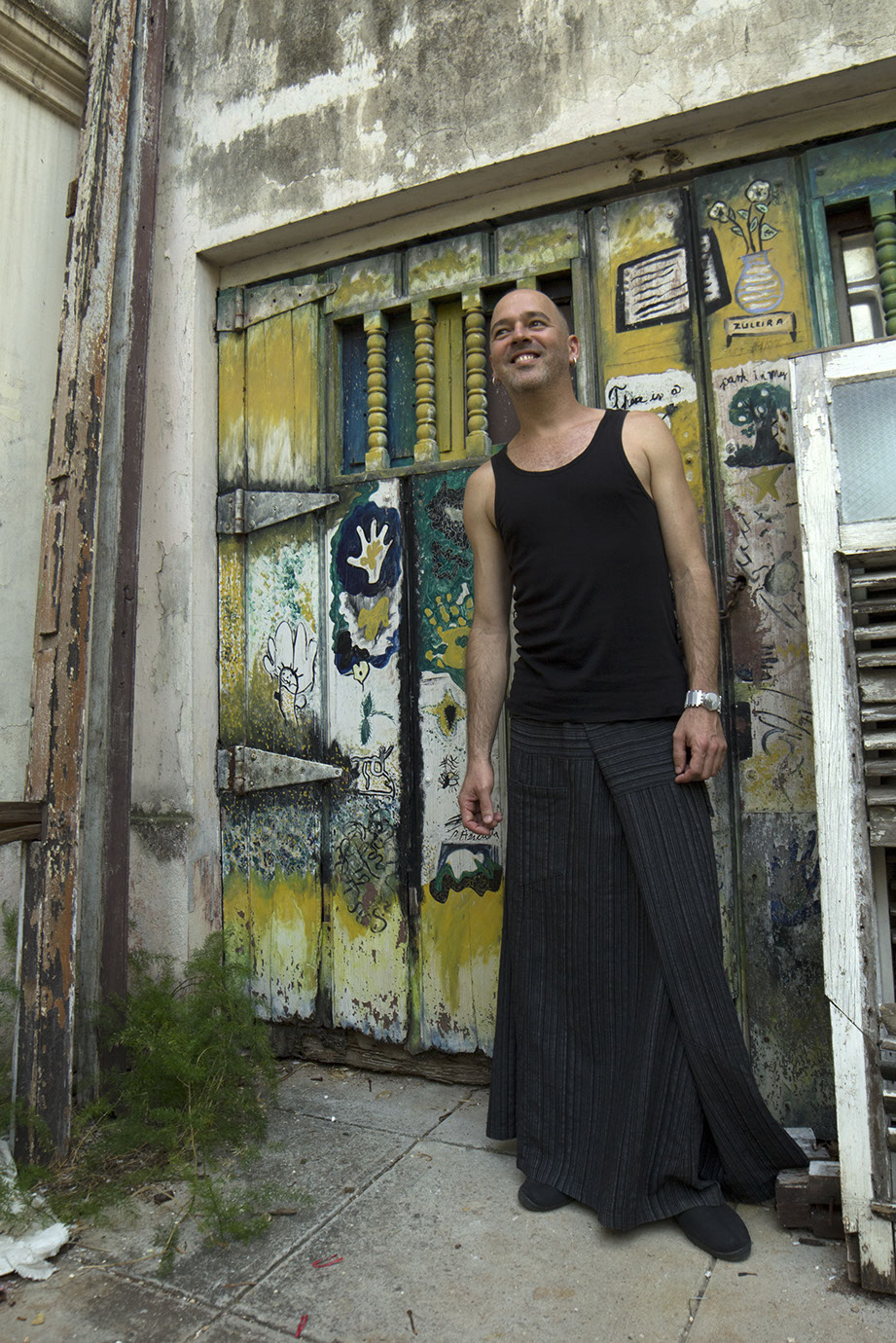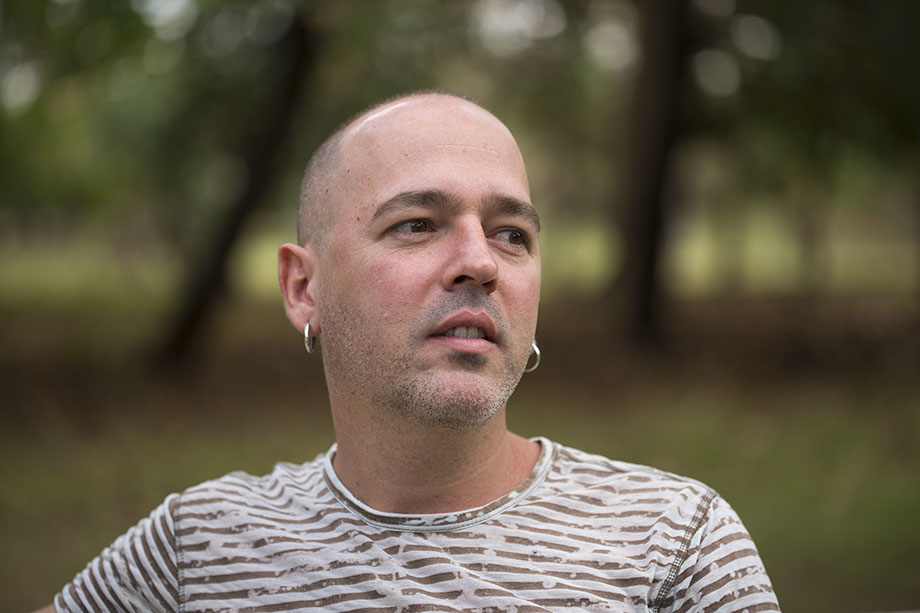

OUT OF THE SHADOWS
STORY BY DANA BREDEWEG / ANDREW SPANGLER / GARRETT GUINN
"I believe that homophobia is being sophisticated now"
- CARLOS BORBON -
Carlos Borbon’s quiet, unassuming presence is not what comes to mind when one thinks of the classic brash, bombastic character of an improvisational actor. It would be easy to overlook him sitting at the edge of the crowd. But within moments of meeting, the reason he’s an actor becomes clear. In the time in takes to exchange names, share a hug and a first real glance, Borbon has made a connection.
Borbon and his companions at the Spontaneous Theater group are not creating a show to entertain the audience, but rather to trade in trust. The theater itself is designed to inspire that sense of closeness. Brightly painted murals and bookshelves filled with instruments greet visitors. Wide-open windows welcome the sounds of the apartment houses crowded on either side. Their stage is not a stage; it’s the other end of the room. The audience sits on yoga mats laid out on the floor.
Each show begins with an anecdote from the actors’ lives. Some are funny; a wife is grateful her husband has left for the weekend. Others, like a woman receiving a phone call that her friend is ill, are more serious.
“We share something with the audience that is very personal, very deep and very real,” Borbon says. “That is the first thing that we always do, because we set the example. Then we ask the people to share their own.”
Borbon has a master’s degree in psychodramas and is also a nurse, something he says is vital in his approach to acting.
“There is a principal in medical ethics where it is read that, first of all, you’re not supposed to damage anybody,” Borbon says. “So in this type of theater, if you are not very well-trained you may end up damaging people. This improvisational theater is not like a game that is played. It is really going deeper into the anecdotes and the stories of the people.”
To create a space where the audience feels safe sharing, Borbon makes himself vulnerable, often opening up about his personal struggle with being gay and HIV positive in Cuba, where LGBTQ-identifying people face legal challenges. He doesn’t share during every performance, but when he does he says it’s well-received. The performances have a way of transcending politics.
Yet, despite the positive reception he gets during his performances, Borbon doesn’t see an easy future for the LGBTQ community in Cuba. In March he was arrested and jailed for a week without reason, a distressing reality for many gay Cubans. Borbon doesn’t see the intolerance within his government changing quickly.
“The police in Cuba right now are really terrible, because [it is] very well organized institutionally,” he says. “I believe that homophobia is being sophisticated now.”
Even when facing imprisonment for being who he is, Borbon feels compelled to tell his story.
“I don’t think that the future is ever going to be easy, nowhere,” he says. “But I do believe that we need to keep up the struggle. In every single performance for which I am present and obviously play a part, those performances are public, and I am going to be telling that I feel that I am persecuted by the police. That’s why I am able to tell this to you. And maybe that is why I am not afraid to do it.”

